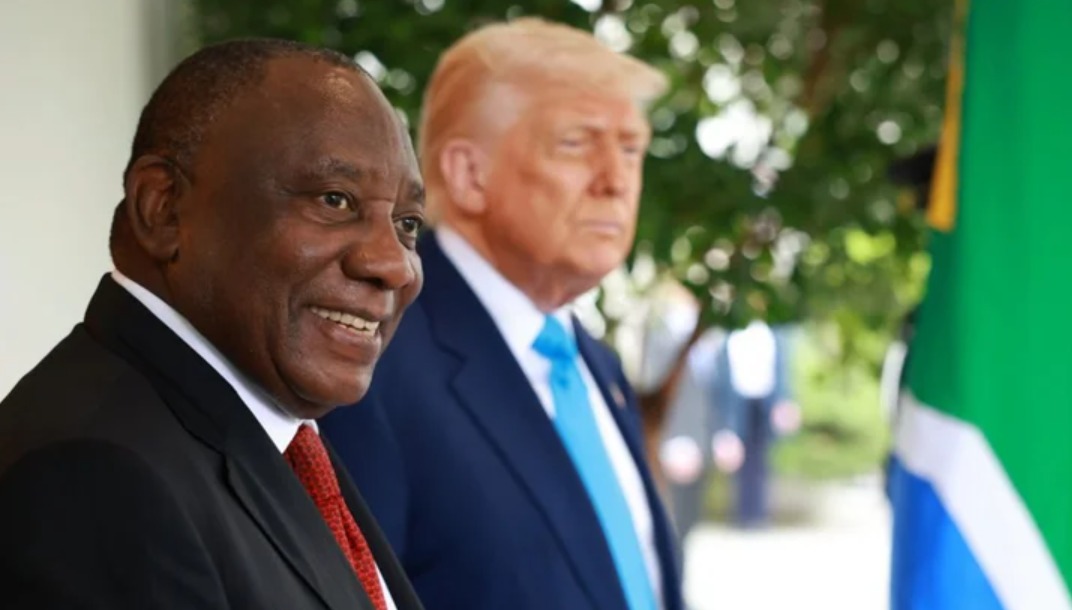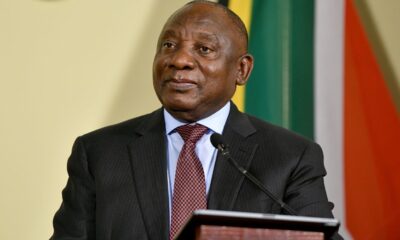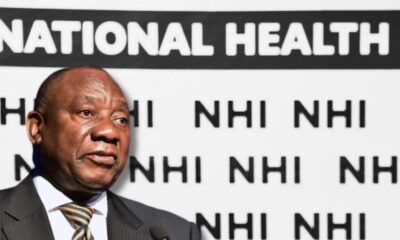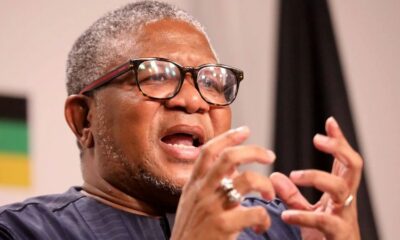News
Germany Steps In as Trump–South Africa Rift Widens: Why the G20 Fallout Matters

Germany Steps In as Trump, South Africa Rift Widens
Chancellor Friedrich Merz warns the US is “needlessly surrendering influence” in Africa.
When Germany’s Chancellor Friedrich Merz stepped up to a podium in Berlin this week, he didn’t mince his words. The growing political frost between Washington and Pretoria, he warned, is not just a South African problem, it’s a strategic blunder that may cost the United States its relevance on a continent that is rapidly reshaping the global order.
And that warning landed at a time when South Africans are still processing President Donald Trump’s shock decision to bar South Africa from the 2026 G20 summit in Miami, an event he is controversially hosting at his own golf resort.
Trump justified the move by claiming “horrific Human Rights Abuses” against white South Africans, a statement widely dismissed in Pretoria as misinformation lifted from fringe narratives, not official evidence.
A Snub Felt Across Johannesburg and the World
The tension didn’t start this week. Washington already skipped the 2025 G20 summit held in Johannesburg, a notable diplomatic cold shoulder that analysts say signalled trouble long before the Miami ban was announced.
For Merz, the absence itself was a red flag.
“I regretted that the American government was not present last weekend in Johannesburg,”
Friedrich Merz
He went further, saying America is “needlessly relinquishing influence” at a time when African geopolitics is shifting, with South Africa increasingly asserting its own foreign policy path, from its stance on Gaza to trade alliances and multilateral cooperation.
Ramaphosa Pushes Back: “This Is Misinformation”
President Cyril Ramaphosa, through spokesperson Vincent Magwenya, responded with restrained frustration, but frustration nonetheless.
Despite repeated attempts by Pretoria to reset relations with Washington, Trump’s administration continues to lump punitive measures on South Africa, from diplomatically isolating it to slapping a 30% tariff, the highest in sub-Saharan Africa.
Magwenya was firm:
The measures are based on “misinformation and distortions” about South Africa.
Ramaphosa has since called on G20 members to recommit to “true multilateralism”, a clear jab at Trump’s exclusionary approach.
What’s Fueling the Rift? A Battle of Narratives
1. The Gaza Court Case
South Africa’s genocide case against Israel at the International Court of Justice has placed Pretoria squarely at odds with Washington, which strongly supports Israel’s military campaign.
2. The AGOA Shock
This week, the South African Chamber of Commerce in the USA (SACCUSA) dropped another bombshell:
AGOA has officially expired, with no timeline for renewal or for South Africa’s re-inclusion.
SACCUSA President Neil Diamond said the expiration is “a shock to the foundation” of US-SA trade and warned that a simple promise of extension “is not enough when jobs and investment are at stake.”
3. The Domestic Vulnerabilities
Economist Jeffrey Dinham added nuance many South Africans quietly agree with:
Yes, Washington’s reaction is heavy-handed.
But no, South Africa is not entirely blameless.
He pointed to long-standing structural issues that undermine investor confidence:
-
high crime
-
mafia-style extortion networks
-
stiff labour regulations
-
collapsing infrastructure
-
suffocating bureaucracy
In other words: diplomacy matters, but domestic reform matters more.
Local Political Reaction: Closing Ranks Against the US
The ANC responded with unusually sharp wording, accusing the US of spreading “conditions that do not exist”.
Spokesperson Mahlengi Bhengu highlighted that during the 2025 G20 summit, hundreds of foreign delegates moved freely around Johannesburg, contradicting claims of widespread violence or persecution.
The message was blunt:
“It is time for South Africans to stand together against disinformation and undiplomatic rhetoric.”
In a rare show of unity, even opposition voices have criticized Washington’s approach, arguing that punishing South Africa economically and diplomatically only pushes it closer to emerging blocs like BRICS.
The Bigger Picture: Africa Is No Longer a Sideline Player
Germany’s intervention is telling. European nations know that Africa and South Africa in particular plays a rising role in trade routes, critical minerals, renewable energy, migration diplomacy, and global political narratives.
By pushing South Africa away, Trump is not only alienating Pretoria; he risks ceding Africa’s geopolitical trust to competitors like China, Russia, and India.
And that is a reality Europe, especially Germany, with its pragmatic diplomatic tradition, wants to avoid.
A Rift With Big Economic Consequences
The collapse of AGOA, G20 exclusion, and punitive tariffs may not prompt American companies to pull out of South Africa immediately, but they intensify a perception that the relationship is unstable.
For exporters, manufacturers, and investors, perception shapes decisions.
For South Africa, already battling slow growth, this is a dangerous moment.
Where To From Here?
The ANC has expressed willingness to engage with US political parties. Merz has promised to raise the matter directly with Trump. And Ramaphosa is leaning into multilateralism to rally support.
But behind the public statements lies a crucial truth:
The US–South Africa relationship is entering one of its most fragile periods in decades.
Unless diplomacy, real diplomacy, kicks into gear soon, both nations risk losing much more than a seat at a summit.
{Source: IOL}
Follow Joburg ETC on Facebook, Twitter , TikTok and Instagram
For more News in Johannesburg, visit joburgetc.com



























